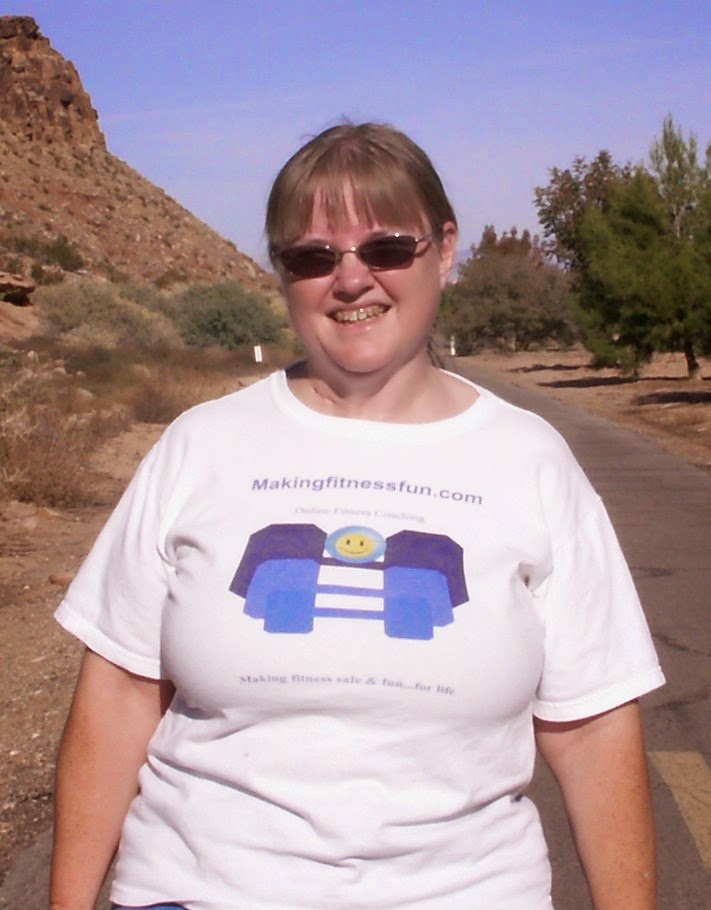 |
| Photo courtesy of Pixabar.com |
Change up your workout program: Every 4 to 6 weeks or whenever your program gets stale or too easy, change it up. Swap out exercises you don't particularly like or you're tired of and replace them with fresh, new ones.
Change up your workout music: If the same songs keep coming up on your Ipod you might get bored. After the first 10 to 20 listens, your favorite playlist can get old. Every now and then, refresh your workout playlist with new songs that energize you.
Surround yourself with positive people: This is huge. Leave the negative Nellie's behind and surround yourself with people who are upbeat and supportive of your fitness journey. This doesn't mean you have to ditch your long-time friends or your family just because they aren't jumping on the fitness band wagon with you. It just means you may want to distance yourself from those people and spend more time with the supportive ones.
As with any life change--from smoking cessation to giving up alcohol--you need to separate yourself from those buddies with the old habit you want to break, especially if they aren't supportive of your new lifestyle.
Keep a fitness journal: Have sections in your journal for weights/measures, food intake, exercise, positive affirmations, comments, etc. Make it personal. Record compliments you get from loved ones and strangers alike, your weight, healthy foods to try, new exercises you'd like to introduce into your program, and so on. Look back now and then to see how far you've progressed and where you need to improve.
Create a vision board: A vision board helps you organize your goals--what you want out of your fitness program, life in general, or any number of aspects of your life--made with poster board and magazine cutouts, PowerPoint, or Pinterest, to name a few. Do it however you want. Let's take fitness, for example. You could have a Pinterest board for your goals and how to get there, another with fitness tips, another for your favorite exercise demos, another board for clothes you'd like to get when you lose weight, and another for positive affirmations. Keep checking your board (s) and reorganize as needed.
Set SMART goals: Make sure your goals come from way down deep inside and are:
- Specific: Decide why you want to lose weight and how you'll get there. "I will lose 20 lbs. by August 1."
- Measurable: This goal above is measurable. You'll weigh yourself regularly and be able to see if you've lost 20 lbs. by August 1 or not.
- Attainable: Take into consideration your fitness level, health issues, work, family, community involvement, and so on. What can you physically do and where can you fit it into your schedule? It's fine to squeeze in 10 minutes of exercises 3 times a day to get the recommended 30 minutes. You don't have to be a superman or woman, shoving aside everything else in your life to exercise for hours on end. Another example is, if you want to run a marathon but have never done it before, you need to realize that you won't be ready in 2 months. Work up to it. Do what you can and stick with it.
- Relevant: Set a goal that is important to you, not one that you think you should set because your friend said it would be a good idea. Setting a goal to exercise and lose weight because you want to lower your blood pressure is good, while exercising because your mother told you to is not. Again, it has to come from a place deep inside you or you will have a harder time sticking with it.
- Time-sensitive: Set a start date and stick to it. "I will start today toward losing 20 lbs. by August 1," has a starting and ending point to determine whether or not the goal is met. On August 1 you'll either be down 20 lbs. or not, but it's something to work toward, with a sense of urgency attached to it.
Visualize goals being met: Fantasize about stepping on the scale and seeing that you've lost those 20 lbs. How does it feel? How do you react? How do others react? Imagine yourself buying smaller clothes. For the first time in years you can fit into your favorite pair of jeans. Imagine enjoying a stroll through a Farmer's Market, picking up great new fruits and veggies to try. Imagine walking with a lighter step. Drink it in and make it happen for real.
Don't compare yourself to others at the gym: Everyone is different with different goals, body types, health issues and so on. Concentrate on your program, your goals, and your needs, not someone else's. So you don't look like the co-ed with 2% body fat ripping up the treadmill. That's okay. Go at your own speed and do what's right for you.
Believe in yourself: You can do it. It took you a long time to gain the weight you want to shed. Give yourself time to lose it. Be good to yourself. Be understanding. If you have a bad day, so be it. Get back on track the next day. Weight loss will happen if you believe in yourself and your ability to develop a healthy lifestyle.
Take it one day at a time: This may be frustrating, but weight loss takes time and patience. A good weight loss rate is 1-2 lbs. per week. Forget the miracle drugs and starvation diets. Do your body a favor and lose weight by eating healthfully and mindfully, getting at least 30 minutes of exercise daily, getting proper sleep, reducing stress, and ditching bad habits (excessive alcoholic consumption, tobacco use).
Have a great weekend!





